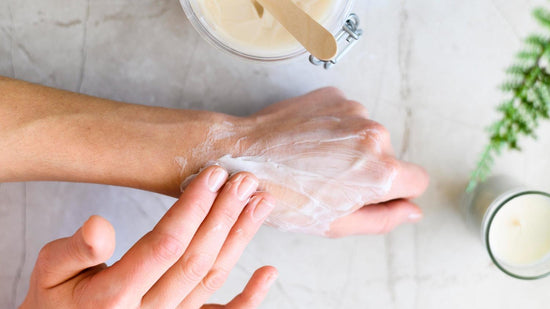How to Combat Persistent Skin Issues with Topical Solutions
Persistent skin issues such as acne, eczema, psoriasis, and dermatitis can be both frustrating and uncomfortable. While some skin conditions are genetic or triggered by environmental factors, managing them effectively requires the right treatment approach. One of the most common and effective methods for addressing persistent skin problems is through the use of topical solutions. These products are applied directly to the skin, offering targeted relief and helping to heal and protect the affected areas. Here’s how to combat persistent skin issues using topical solutions.

1. Identify the Root Cause of Your Skin Problem
Before jumping into any topical treatments, it’s essential to understand the root cause of your skin issue. Different conditions require different types of solutions. For example:
- Acne is often caused by clogged pores, excess oil production, or bacteria.
- Eczema and psoriasis are inflammatory conditions that can be triggered by stress, allergens, or environmental factors.
- Dermatitis is often caused by skin irritation or allergies.
Consulting with a dermatologist will help you properly diagnose your condition, ensuring you select the right topical treatment for effective results.
2. Use Medicated Topical Solutions
Once you’ve identified the specific skin condition, choosing a medicated topical solution can help alleviate the symptoms. There are several types of topical treatments, including:
- Corticosteroids: These are commonly used to reduce inflammation in conditions like eczema and psoriasis. Corticosteroids come in various strengths, from mild to potent, and should be used under the guidance of a healthcare professional.
- Antibiotic ointments: For skin infections or conditions exacerbated by bacteria, such as acne or certain types of dermatitis, antibiotic creams can help eliminate harmful bacteria and promote healing.
- Moisturizers with ceramides: Many skin issues are caused or worsened by a damaged skin barrier. Ceramide-based creams help restore this barrier, locking in moisture and preventing further irritation.
For more severe skin issues, such as certain types of eczema or dermatitis, tacrolimus ointment 0.03 can be prescribed as a non-steroidal option. It’s used to reduce inflammation and alleviate the discomfort associated with these conditions. The ointment is often recommended when other treatments have failed to deliver desired results.
3. Follow a Consistent Skincare Routine
Topical solutions are most effective when used consistently. For conditions like acne, eczema, and psoriasis, a long-term approach is often necessary to keep symptoms under control. Establishing a daily skincare routine that includes cleansing, moisturizing, and applying medicated treatments can help prevent flare-ups and keep your skin healthy.
- Cleansing: Use a gentle, fragrance-free cleanser that won't remove the skin's natural oils. Over-cleansing can lead to irritation, so be sure to cleanse only twice a day.
- Moisturizing: Always use a moisturizer that matches your skin type. Even if you have oily skin, skipping this step can cause dryness and excessive oil production.
- Applying Medicated Solutions: Make sure to apply topical solutions as directed by your dermatologist. Skipping applications or using too much product can lead to further skin irritation or reduced effectiveness.
4. Avoid Triggers That Worsen Skin Conditions
Many persistent skin issues are aggravated by environmental factors or lifestyle choices. For example:
- Avoid harsh skincare products: Alcohol-based toners, strong exfoliants, and overly perfumed creams can irritate sensitive skin.
- Watch your diet: Some skin conditions, like acne, may be triggered by certain foods, such as dairy or high-glycemic foods. Keep track of any foods that seem to cause flare-ups.
- Manage stress: Stress can exacerbate skin problems, particularly conditions like psoriasis and eczema. Incorporating stress-reducing activities such as yoga, meditation, or regular exercise can help manage skin symptoms.
5. Consult a Dermatologist Regularly
Persistent skin issues may require ongoing management and treatment adjustments. Regular check-ins with a dermatologist can ensure that your treatment plan remains effective and that any side effects are managed promptly. If your current topical solution isn’t delivering the desired results, a dermatologist can recommend alternatives that may work better for your skin type and condition.
Persistent skin issues can significantly impact your quality of life, but with the right topical solutions and skincare routine, you can manage and even overcome these problems. Whether you’re dealing with acne, eczema, or other chronic conditions, understanding the root cause, using effective topical treatments, and following a consistent skincare routine will help you achieve healthier, clearer skin over time.

.png)

Comments
Post a Comment